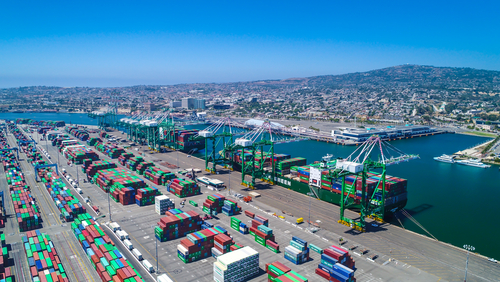
The Port of Long Beach, the Port of Los Angeles and the Maritime and Port Authority of Singapore (MPA) recently announced a partnership strategy for a green and digital shipping corridor across the Pacific Ocean.
The strategy outlines steps the ports and C40, a network of mayors working to confront climate change, will take to accelerate decarbonization in the maritime shipping industry. It also highlights the partnership structure, governance, financial management, confidentiality, decision-making, and the process for onboarding new participants.
The strategy’s four main components: to coordinate decarbonization efforts, build consensus on green shipping best practices, improve access to and adoption of technology and digital solutions, and leverage networks.
“Over the last two decades, we’ve learned that collaboration between maritime industry partners is the key to making meaningful progress in reducing emissions and cleaning the air,” Mario Cordero, Port of Long Beach CEO, said. “This trans-Pacific green shipping corridor takes this concept global. The strategies we develop here can be used as a roadmap by a larger network of seaports and supply chain companies to invest in programs, technologies, software and infrastructure to decarbonize international trade everywhere.”
The ports and C40 commissioned a study to analyze trade flows and vessel traffic between Singapore, Los Angeles and Long Beach.